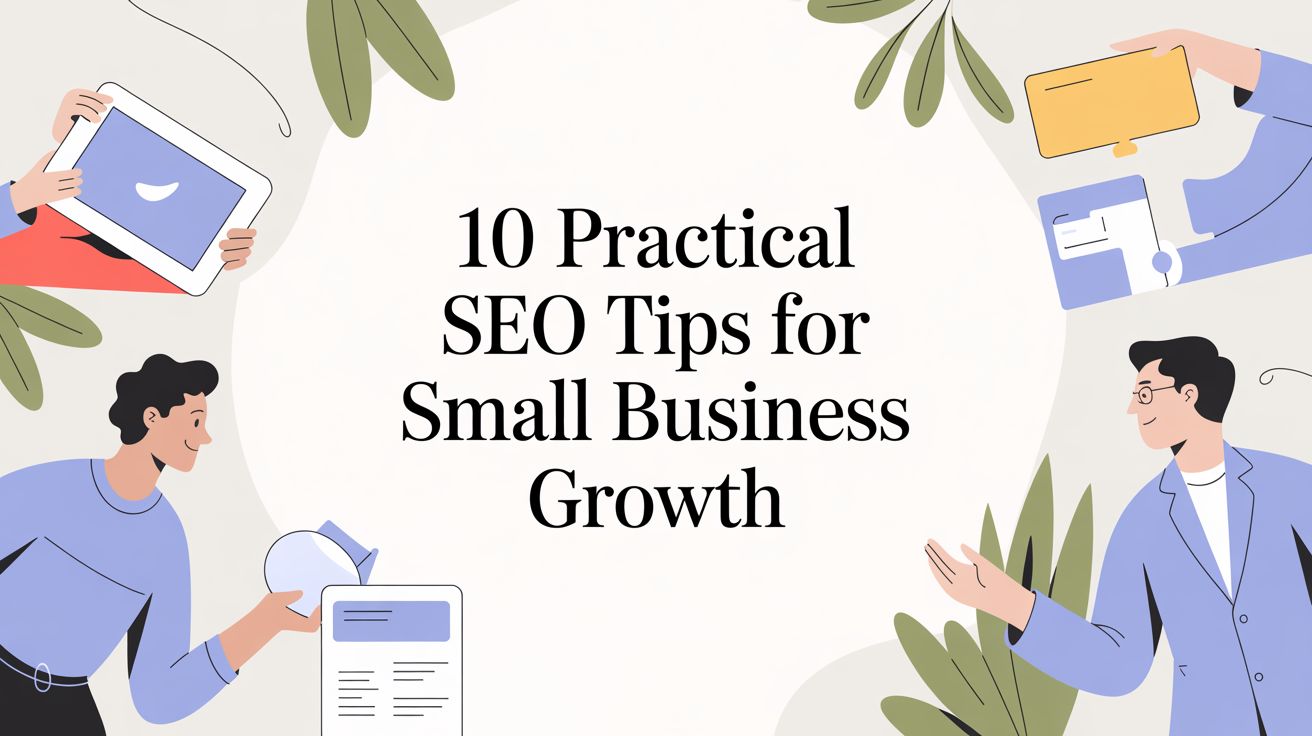Weekly marketing wisdom you can read in 5 minutes, for free. Add remarkable ideas and insights to your inbox, once a week, by subscribing to our newsletter.

Why Should You Update Your Website Frequently
One of the most frequently asked questions we get from new clients is about how often you should update your website.
This is a good question, with conflicting information available online. That’s why we’ve put our heads together and come up with this article.
So, let’s find out ‘Why You Should Update Your Site Frequently?’
Table of contents:
Why is Updating Your Website Frequently Important?
When this article first came across my desk, I had a discussion with the team about why they felt it was important to update a website regularly.
Design
The design of your website should reflect the world’s perception of your company. This is a good time to change with the times as design trends evolve over time.
Otherwise, your current customer base will start to feel neglected and may take their business to competitors.
Rebrand
Many companies find that revitalizing their logo is just the thing they need to drum up new interest in their brand. A rebranding of a company’s logo, website and strategy can be very effective when it comes to attracting new clients.
Many companies rebrand every 3 to 5 years. Although the changes may be minor, rebranding can have significant impacts.
Adapting to updates
When choosing to upgrade your website, it is important for you to account for updates. In many cases updates won’t affect the performance of your site.
To avoid trouble with updates, keeping your website updated can protect you. Web hosts often make changes to their platform and developers make app updates that might put your site at risk. To mitigate the potential for trouble, it is important to keep up-to-date on all of these changes.
Mobile Ready
In 2021, people will be accessing your site from mobile devices more than they are using computers.
In 2021, it is imperative that your site be mobile ready. It isn’t worth risking losing potential customers just because you want to shoot for a more traditional look or feel.
If your website isn’t mobile ready, you are losing out on business.
Online Safety
Users want to know where their data is going, and as a result of this they have become more tech savvy in general. They want to be sure the cookies on your website are not getting them into danger.
It is important for users to feel safe and welcome on your site. An important part of a user’s experience is knowing how their data will be used, so do not forget to have them read about your cookie policy.
User Experience
A user’s experience comprises all the various factors of your website. If any are not to their liking, they will not be interested in visiting your page.
User experience is the sum of all perceptions that a user encounters while using your brand or website. A great user experience starts with easy navigation on any device, and attentive customer service to answer questions and reassure nervous shoppers.
How Updating Your Website Frequently Can Improve Your SEO Rating
Some of you marketers out there may have noticed that SEO didn’t make our first list, which was intentional. This point deserves its own title!
Before we go any further we thought it might be helpful to break down SEO for those of you out there who might be new to the subject.
What Is SEO?
SEO stands for Search Engine Optimization and is the process of increasing your website’s search engine presence on a search engine such as Google or Bing.
Search engines use a series of data to determine what websites they will serve to their users, the user experience is a major aspect of what may be taken into consideration.
Another factor is the amount of fresh useful content being uploaded to the website, this is where creating content comes into the equation.
Articles are a fantastic way to boost your website ranking status because search engines look for keywords. Using articles that have helpful content and key words helps your article rank higher in the search engine results pages.
For a full deep dive into the subject of SEO why not check out this article? What Is Seo? Everything You Need To Know.
So we’ve briefly touched on it there with our definition, creating regular helpful content. Frequent content gives your users a reason to come back to your website and allows you to build a relationship and trust with your client base.
Much like the design, all of the content you put on your website is a direct reflection of how your prospects will see you, make sure it’s helpful, make sure it’s well presented.
Not updating your website at all will ensure that your website slides down the search engines rankings as they only serve the most recent content to their users.
How Frequently Should You Update Your Website?
When looking online for how frequently you should update your website you may well be presented with lots of conflicting information. This is because there’s a few different answers here, rather than a one size fits all solution.
Generally speaking, it’s a good idea to upload new content to your website weekly or at the very least monthly, as search engines update so rapidly.
The sort of content you should be uploading should be relevant to your brand and ideally helpful to your prospects.
Another answer you’ll commonly see online is every 2-3 years.
This figure is usually in relation to a complete redesign and rebranding of the website, this at first may have a negative result to your rankings, especially if you have changed the site’s URL structure or the user experience. Don’t worry though rankings do stabilize usually after a month.
Later on in the article we’re going to look at a few situations you might come across that will inform your decision to update your website so, keep an eye out for that!
How To Know When To Update Your Website?
Now we’ve seen how frequently you should be updating your website, we’re going to take a look at a few situations that may call for you to consider updating your website.
Out Of Date
There’s a few ways that your website becomes out of date. Whether it’s a design aspect or a technical aspect, it’s inevitable that you will have to update your website, if you want your brand to succeed.
Checking out what your competitors are doing is a great way to gather inspiration and see where your brand might be able to fill some gaps they’re missing out on!
New Customer Needs
Over time your customers’ needs may grow and it’s important that your website grows with them or they may find a similar experience elsewhere.
Keeping a keen eye on your website’s activities, trends in your industry and your competitors will help you get a leg up in this regard and not be left behind.
Alter Brand Direction
Altering your brands direction in many cases will come as a repercussion of your customers needs changing over time.
So not to confuse your prospects, ensuring that your brand’s message stays consistent throughout multiple mediums is a key here.
If you’re changing brands direction of branding then updating your website to reflect those changes is of the utmost importance.
Not Responsive
If your website is unresponsive on mobile or on the plain on the internet, you will lose prospects quickly if your site isn’t responsive.
Much of the rankings system is built around trust, if your site is unresponsive the chances are anyone who did find their way onto your website would quickly leave. Usability should be high on your list of priorities across all platforms.
When Your Budget Allows
The final point we want to highlight in this section is when your budget allows for the update to take place. This might seem like quite an obvious point to make, however we think it’s quite important and certainly worth a mention.
Unless you plan to do the whole website yourself it’s quite likely that you’ll bring in a third party to take care of that work properly.
How Long Does It Take To Update A Website?
So, as we’ve already discussed there’s several factors that go towards website design and management.
So there are several elements that will need to be created from graphics and animations to user experience, to create a smooth and attractive website for your prospects to visit.
In many instances a website redesign can take from 3-6 months depending on the level of work that is involved with the project.
Although, I think one of the major takeaways from this article should be that redesigning or keeping your website fresh is a full time job.
The internet never sleeps, there’s new content being uploaded all of the time.
For instance there’s 500 hours of video being uploaded to YouTube every minute of every day, so you can probably now get a clearer idea of how much ‘noise’ there is on the internet for your brand to break through before you even reach your prospects.
New pages can be added quickly depending on the content to wish to add to the page itself but in most cases new pages can be created in 5-10 business days.
Making sure you give clear and concise instructions on how you’d like your brand to be represented will help the process move forward, as will quickly replying and providing clarifications or sign offs on elements will aid in getting your project finished as fast as possible.
How To Update Your Own Website?
We’re not going to lie to you creating your own website or updating your own website is hard work.
Although there are options out there such as Wix or Squarespace that offer you the ability to ‘create’ a website everything there is based on templates, this all looks very ‘Cookie cutter’ and quite unprofessional, so we don’t really recommend that you use website such as that to create or update your website.
If you don’t know what you’re doing as far as web design goes there’s a good chance you could miss editing a line of code in your hosts editing tool and break your website entirely.
However we do have a few tips for you that might help those of you wish to get started updating their own websites.
Get To Know The Tools
Every website maker, backend editor will have its own interface and challenges you may need to face before you’re even able to get your first piece of content on your website.
Fortunately, we live in the age of YouTube and most if not all of these interfaces will have tutorials online to help you get started.
Evaluate The competition
This is a point we’ve already touched on a couple of times during the course of this article, but as a strategy go this one is pretty tried and tested. Checking out the competition allows you to see what’s working and what’s not.
This also creates lots of opportunities to see where your brand might be able to fill gaps in the market that’s been left by your competitors.
Be Inspired
Whilst visiting your competitors or any website for that matter allow yourself to take inspiration to build upon. Whether it’s a design element or an interface element that draws you in, take note, as these are both factors that may well influence people to visit your site.
Check Your Analytics
As marketers we live and die by our analytics, after all this is the guide to whether or not our website is doing well.
Every website builder or profile page editor has some form of analytics monitoring system that you can take advantage of, it’ll pay in the long run to become familiar with them all!
Photoshop
If you’re planning on putting an entire website together by yourself then getting good at photoshop is essential. Many elements on a website will be created using photoshop or another one of Adobe’s many and expensive software.
A/B Testing
The principle behind A/B testing is essentially to build two versions of your website and run them at the same time, this is a fantastic way to gather some information about what may or may not be working about your website’s design and performance.
As we move into the final sections of this article we’re going to look at a few tools that will help you get started on the road to updating your website frequently.
What Tools Can I Use To Update My Website?
Now we’re going to cover some of the main tools you will need to take advantage of if you’re looking to update or create your first website.
Many of these tools are the tools that professionals use, although we have highlighted a few that can be used by beginners and professionals alike.
Website Builders
We mentioned them earlier but website builders such as Wix, Squarespace or Godaddy can be a great option, especially if you’re not particularly creative or technically minded.
Like we stated before these websites do offer a quick solution but all are very cookie cutter and very similar looking in design. These sort of websites are perfect for artists or someone wishing to showcase their work in some way as they usually come with little cost investment.
The Adobe Creative Suite
I think we’d be remiss if we didn’t at least mention the Adobe creative suite, they have tools for everything from photo editing to web development and pretty much anything else you can think of that might be considered in the ‘creative’ space.
This is, in many cases, what the professionals use and as a consequence there’s quite a steep learning curve and price tag attached. Creative suite runs on both macs and pc, there’s also app integration for tablet like devices too.
If you’re planning on creating your own content to go along with your SEO efforts then having the Creative suit might be a more interesting offer, as there are lots of video editing and production tools available with their monthly subscription package.
Find out more about Adobe Creative Suite Here
Komodo IDE
This is a user-friendly web developer kit that allows you to code in different coding languages such as HTML, CSS to name a few. There’s also a fantastic little autocomplete feature on the code editor that makes editing code a piece of cake.
Find out more about Komodo IDE Here
Mobirise
Another HTML editor for those who have little to no understanding of how to use HTML code. It works in a similar way to those website builders we mentioned before that allow you to simply drag and drop elements to where you desire them to be.
Find out more about Mobirise Here
Gimp
Gimp is a free alternative to photoshop and may well come in handy if you’re not quite ready to delve into Adobe’s costly ecosystem. All of the tasks you can do with photoshop can be done with Gimp given a little patience and getting to know the softwares limits.
It’s certainly not quite as intuitive as Photoshop but there’s enough there to get you started and get those creative ideas flowing.
FileZilla
Filezilla is a software that allows you to transfer your data on to your web server. It’s free and has a simple drag and drop style menu that allows you to simply place files from one folder to another. There are a few other options out there for FTP solutions but most regard Filezilla the best.
Find out more about Filezilla Here
How Much Does Updating A Website Cost?
When asking yourself how frequently your website should be updated the question of money is undoubtedly going to cross your mind before long. As we’ve already discovered, updating a website is rather a complicated affair.
Whilst there’s no set figure we could give you here because many companies offer different packages at different rates. Also another factor to take into account is that the price of a company may well reflect the quality of work that company is likely to provide.
A bespoke professionally made website is likely to cost between £2,500 and £10,000. There are a few other fees that should be taken into account such as the web hosting and content updates, such as articles and videos.
Again prices here will vary from company to company, so it might pay off to shop around.
Interested in having your website updated by professionals? Why not get contact with the team here at Lead Genera and find out how little you could have your website updated for today.
Visit our Web Development Page to Request a Proposal Today!
The Best Company To Update My Website?
We might be slightly biased here, but the team here at Lead Genera is easily the best company in England, maybe even the world! Seriously though, We have loads of experience providing website updates and SEO generation services to all our clients.
Our websites can easily be integrated with mobile devices. Our team here at Lead Genera are extremely talented and we are extremely dedicated to seeing your business be a success!
We listen to our clients and always work to ensure that their vision is fully recognised.
If you want to see some examples of our past work why not visit our Examples Page?
Conclusion
It’s important to update your website frequently because it helps you in many ways.
First, updating the design of your site will make people want to stay and browse more when they visit. You can also use updates as a chance to rebrand or adapt for new technology that is coming out (ie – mobile ready).
Finally, if the user experience on your site isn’t up to par then there are no visitors left! And we all know how important SEO ratings are nowadays so here’s some tips on how often you should be updating your website page titles according to Google Webmaster Tools guidelines. If any of these sound like something you need help with just give us a call and let the Lead Genera team create an amazing marketing plan tailored to your specific requirements.
Liked this article? Why not try another one from our Knowledge Hub?




